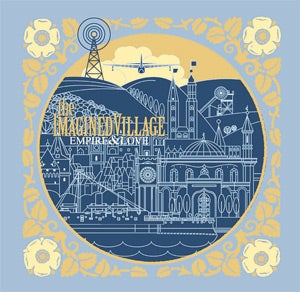Your support helps us to tell the story
From reproductive rights to climate change to Big Tech, The Independent is on the ground when the story is developing. Whether it's investigating the financials of Elon Musk's pro-Trump PAC or producing our latest documentary, 'The A Word', which shines a light on the American women fighting for reproductive rights, we know how important it is to parse out the facts from the messaging.
At such a critical moment in US history, we need reporters on the ground. Your donation allows us to keep sending journalists to speak to both sides of the story.
The Independent is trusted by Americans across the entire political spectrum. And unlike many other quality news outlets, we choose not to lock Americans out of our reporting and analysis with paywalls. We believe quality journalism should be available to everyone, paid for by those who can afford it.
Your support makes all the difference.Simon Emmerson's folk/world project becomes a much firmer, more focused aggregation than on its 2007 debut.
The programmed beats are pared back to a minimum in order to allow the rhythm section room to devise a range of more subtle, organic, grooves, with sitar the sole non-British frontline element in what is now more obviously a band sound.
The result is a quantum leap beyond the first Imagined Village album, refurbishing the mostly traditional folk material in a variety of potent new arrangements, but now fronted by the band's core trio of singers (Martin Carthy, Chris Woods, and Eliza Carthy) rather than an endless series of guest vocalists. It's effective in so many ways: "Mermaid", with its droning violins and accordion and loping double-bass funk groove, is like an English folk take on Miles Davis's "Kind Of Blue", while "The Handweaver and the Factory Maid" has the casual gait and warm texture of a JJ Cale piece transposed to the English pastoral tradition. The Eastern-tinged folk groove to "Sweet Jane", with its Indian-style violin lines and skirling drones, is a extension of what Fairport Convention heralded with "A Sailor's Life", while the blend of sitar and guitar picking on "My Son John" recalls the classic Incredible String Band ethnic-crossover experiments. Drawn from Martin Carthy's extensive repertoire, the song is a Napoleonic anti-war ballad about crippled cannon-fodder, brought bang up to date to reflect the toll paid by amputee veterans of Blair's wars.
Carthy's back-catalogue furnishes several other songs: "Byker Hill" is set to a 9/8 rhythm, with a mid-section of angelic overlapping harmonies repeating the title like a mantra, eventually leading into a coda of dervish fiddle, sitar and harmonies; and two versions of "Scarborough Fair", with sitar added to Carthy's definitive guitar arrangement, are sung by Woods, one with a ghostly undertow of accordion, later reprised with added strings. Elsewhere, Eliza Carthy delivers Ewan MacColl's "Space Girl" – essentially, the extension of parochial suspicion of outsiders to cover interplanetary travellers – with real pop aplomb.
It speaks volumes about the band's versatility that they adapt as easily to this as to the album's more earthbound themes, of which the most startling is undoubtedly a version of Slade's "Cum On Feel The Noize" turned into a combination folk lament and invitation to the dance: with the world-weariness of Martin Carthy's delivery spiked by his daughter's descant harmony, and wistful fiddle and sitar further emphasising the mood of poignant yearning.
Download this My Son John; Sweet Jane; Scarborough Fair; Space Girl; Mermaid

Join our commenting forum
Join thought-provoking conversations, follow other Independent readers and see their replies
Comments